The second year has passed since the beginning of the full-scale invasion of Ukraine by the Russian Federation. Journalists from different countries actively visit Ukraine, record all the crimes of the aggressor country, and tell the world about the terrible events of the Russian-Ukrainian war. Our colleagues from Spain – Luis Alfonso Quintana Sanz, Javier Jesus Zabalza Granero, Mauricio Gonzalez Gotor, and Esperanza Maria Calvo Vasquez – came to Ukraine with the same purpose.
They worked in Ukraine for almost two weeks and then told their audience about what they saw. Protective equipment for work in the front-line territories was provided to foreign colleagues in Lviv – in the unified West Ukrainian Journalists’ Solidarity Center (JSC) of the National Union of Journalists of Ukraine (NUJU).
In Lviv, journalists also visited the Superhumans Center, prepared materials about prosthetics for the military, as well as stories about the Defenders who are currently there. Superhumans Center is a modern clinic for prosthetics, reconstructive surgery, rehabilitation, and psychological support for Ukrainians who suffered as a result of the full-scale Russian invasion.
In addition, the journalists visited Kyiv. They worked there for almost five days. They prepared stories about air defense, in particular, about the operation of the anti-aircraft self-propelled installation Gepard, which can shoot down both enemy drones and missiles. Also, foreign colleagues made materials about the training of military women because today, many Ukrainian women have joined the ranks of the Armed Forces of Ukraine (AFU).
Journalists also shot stories in the Donetsk and the Kharkiv Regions. We prepared materials about the Spanish volunteers who protect Ukraine today. Spain has a Guardia Civil, a professional military organization somewhat similar to the French Légion. Its servicemen today joined the fight against Russia.
Also, colleagues made a report about Leopard tanks. Tankers told journalists about the peculiarities of using the equipment, noting that there is a big problem – there is very little of it now. Journalists were preparing materials about artillery in the field hospital.
They usually filmed reports without incidents and security threats, although there were still very turbulent situations.
“Only once, when we were filming about the artillery, we did not reach the positions because the artillery installation, which was supposed to be filmed, was hit by a plane, and it exploded. Fortunately, no one was there at the time. We went to film a friend who was nearby, but we didn’t get there either, because heavy shelling began. We went back and made the story anyways. They told about why they did not arrive and what happened. The enemy has a lot of drones and shells; we have a critical shortage of them,” notes fixer Yurii.
Foreign colleagues have already returned to Spain, so soon, stories from Ukraine will be broadcast on a Spanish TV channel. It is very important to talk about Ukraine to the world because today, it also helps in the fight against the enemy.
We draw your attention to the fact that through its Journalists’ Solidarity Centers, the NUJU provides branded bulletproof vests, helmets, and tactical first-aid kits to Ukrainian and foreign journalists working in the war zone. When planning a business trip to the front-line areas, always take care of your protection!
Call the Western Ukrainian JSC at 097 907 9702 (Nataliya Voitovych, the Lviv JSC, Volodymyr Bober – assistant). The Center’s address is 5, Solomiyi Krushelnytskoyi Street.
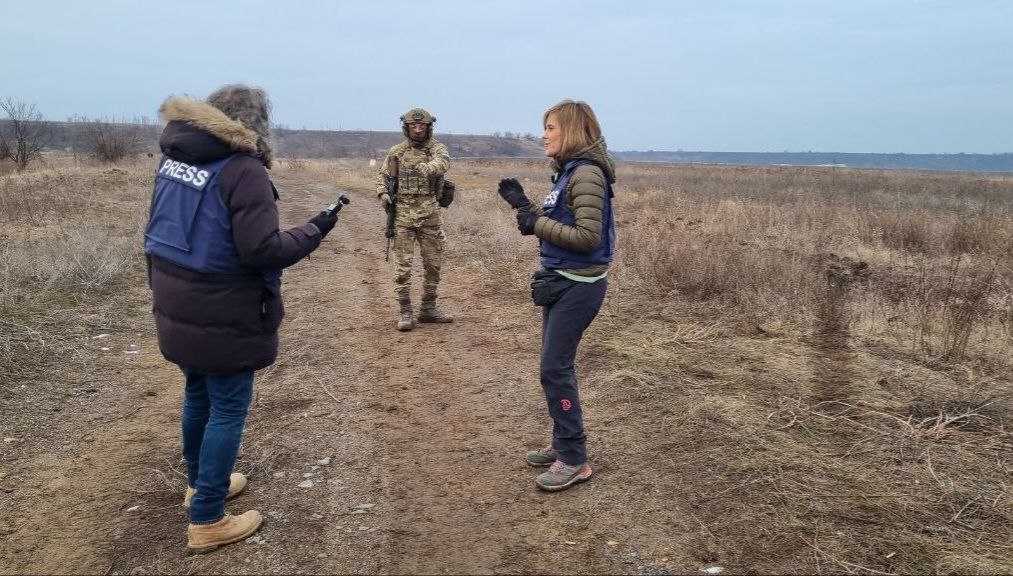
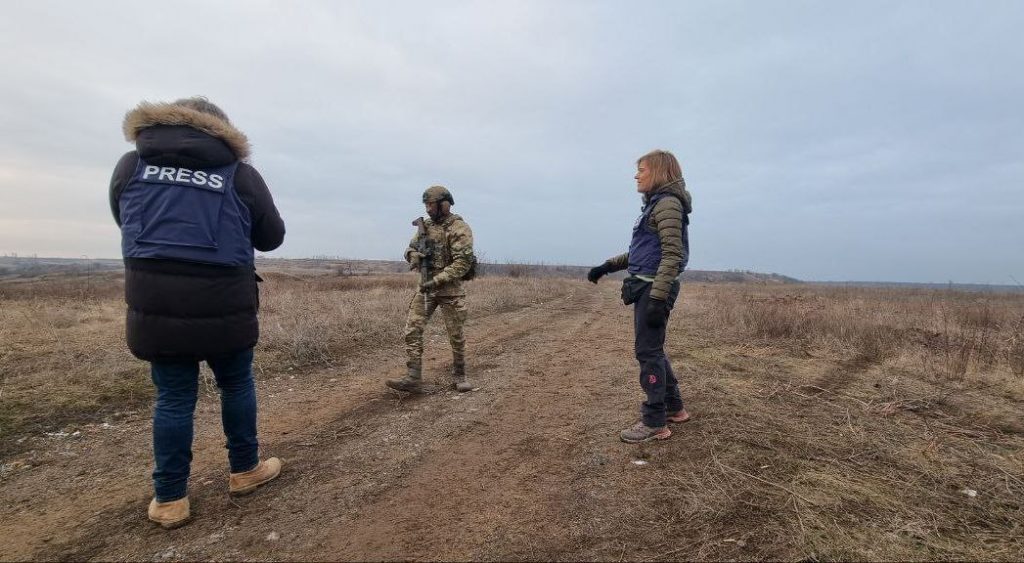
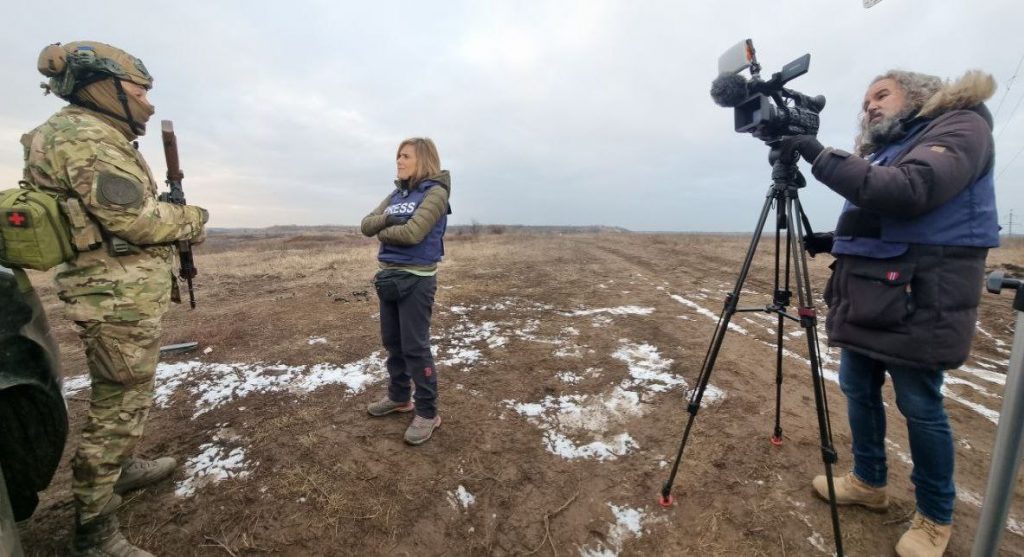
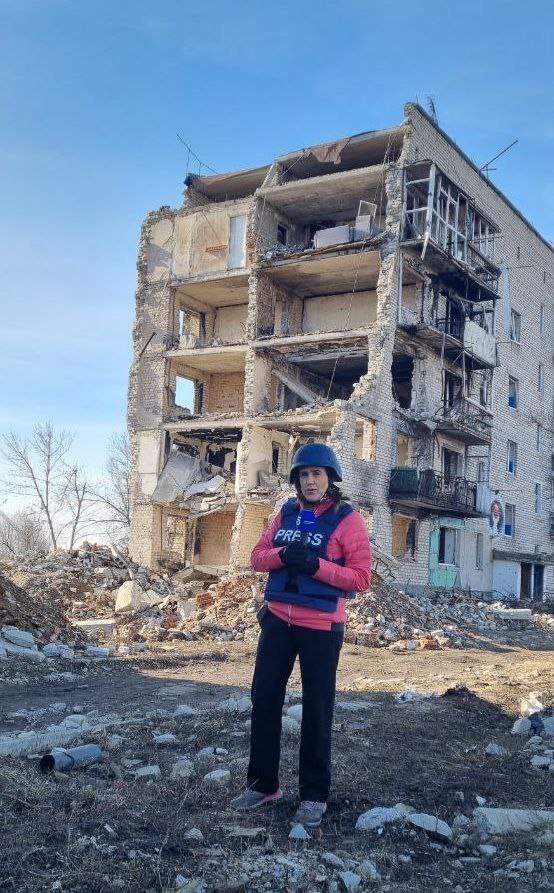
ABOUT JSC
The Journalists’ Solidarity Centers is an initiative of the NUJU implemented with the support of the International and European Federations of Journalists and UNESCO. The initiative is designated to help media representatives working in Ukraine during the war. The Centers operate in Kyiv, Lviv, Ivano-Frankivsk, Chernivtsi, Zaporizhzhia, and Dnipro and provide journalists with organizational, technical, legal, psychological, and other types of assistance.
ABOUT UNESCO
UNESCO is the United Nations Educational, Scientific, and Cultural Organization. It contributes to peace and security by promoting international cooperation in education, sciences, culture, communication, and information. UNESCO promotes knowledge sharing and the free flow of ideas to accelerate mutual understanding. It is the coordinator of the UN Action Plan on the Safety of Journalists and the Issue of Impunity, which aims to create a free and safe environment for journalists and media workers, thus strengthening peace, democracy, and sustainable development worldwide. UNESCO is working closely with its partner organizations in Ukraine to provide support to journalists on the ground.
The designations employed and the presentation of material throughout this digest do not imply the expression of any opinion whatsoever on the part of UNESCO concerning the legal status of any country, territory, city, or area or its authorities or concerning the delimitation of its frontiers or boundaries.
The authors are responsible for the choice and the presentation of the facts contained in this digest and for the opinions expressed therein, which are not necessarily those of UNESCO and do not commit to the organization.
Alina Shtempel

 THE NATIONAL UNION OF
JOURNALISTS OF UKRAINE
THE NATIONAL UNION OF
JOURNALISTS OF UKRAINE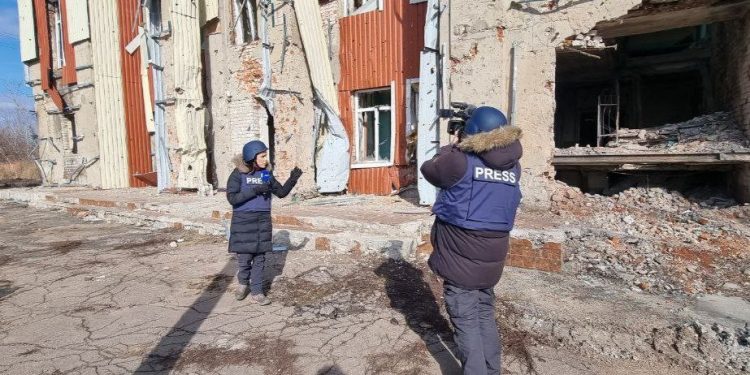
















Discussion about this post